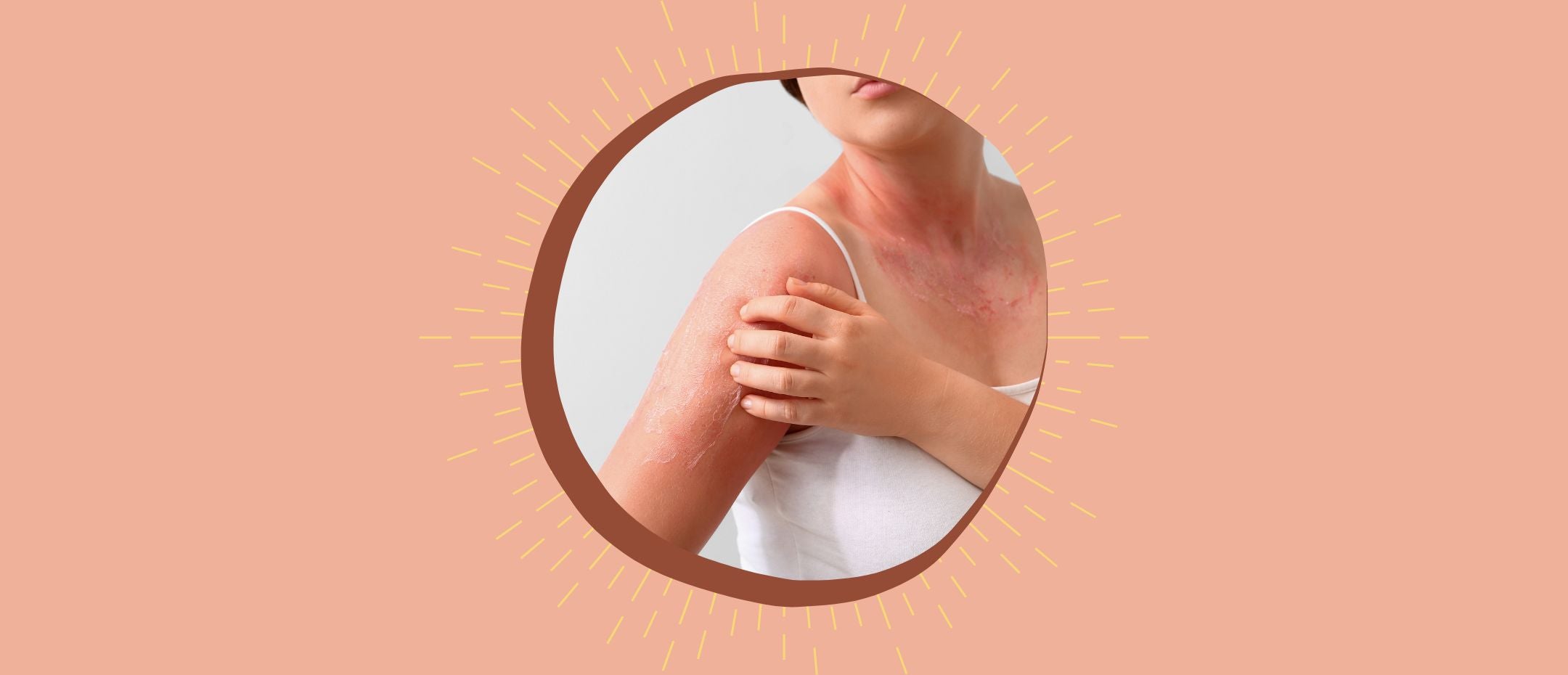Everyone loves to enjoy a warm summer day spent outside at the beach or lake with family and friends. However, prolonged exposure to the sun, even with sunblock, may inevitably lead to sunburn.
Millions of people experience sunburn each year, and while it is not always life-threatening, a sunburn can make many aspects of life more difficult — especially sleeping!
As sleep specialists, the experts at Polysleep, your mattress company, are here to help you learn how to sleep with sunburn.
What is a sunburn?
A sunburn is the direct result of cellular damage to the skin from overexposure to ultraviolet rays from sunlight.
A person’s ability to burn is predetermined by the genetic makeup of their skin’s phenotype based on how much or how little melanin is produced in response to sunlight.
For example, a person who has fair skin is more likely to burn outdoors because they produce less melanin than someone who is naturally tan.
A few hours after being outside in the sunlight, you may notice your skin appears red and becomes itchy, painful, or warm to the touch.
The redness of your skin is caused by inflammation from dilated blood vessels in the area. These blood vessels are responsible for removing the damaged and dying skin cells from the body for new, healthy cells to grow.


How long does it take a sunburn to heal?
A mild-to-moderate sunburn is the most common type of sunburn experienced.
Unless you fall asleep in the sun for several hours, it is not likely you will experience a severe or life-threatening sunburn.
A moderate sunburn is a type of first-degree burn that only involves the outer layer of the skin known as the epidermis, while more severe burns may penetrate deeper.
If you have ever spent a full day outdoors, you have likely wondered how long until your sunburn heals.
A moderate sunburn can take up to 7 days to fully heal and a severe burn can take several weeks.
There are a few factors that may slow the healing process, like genetics or other medical conditions, including diabetes.
How to sleep with a sunburn?
A sunburn can be uncomfortable and painful, and when a sunburn itches it can become unbearable as itching only worsens the pain.
During the day you are on the go running errands, going to school, or focusing on work so you do not notice the pain of your sunburn, but at night, as you crawl into bed the pain and itching seem to intensify, making sleep difficult.
Experts recommend:
Take over-the-counter medication
Pain relievers and nonsteroidal anti-inflammatory medications, like Tylenol and Ibuprofen, are designed to decrease pain and inflammation accompanied by a sunburn. The NSAIDs work by constricting blood vessels that have become dilated from sun damage to reduce itching, inflammation, and while pain relievers help with the pain. If your doctor allows you to take these, they can help you sleep better with sunburn.
Take a cool shower
By taking a cool shower at night, you can cool the temperature of your skin for soothing comfort, but it is important not to take a shower too cold as this could wake you up.
Turn down the air conditioning
Many people turn down the A/C at night regularly but consider bumping the air conditioner down 1 to 2 degrees more than usual. The cold air will keep you comfortable while you sleep.
Wear appropriate clothing
When a sunburn itches, the right clothing is important. Look for softer materials like jersey cotton or silk rather than rough materials that will cause friction and rub against your skin with every movement.
Why is my sunburn itchy and what can I do to soothe it?
A sunburn causes cellular damage to the top layer of skin (epidermis). This layer contains many nerve fibers that are responsible for producing the itching sensation.
When damage occurs from ultraviolet rays, the nerve fibers are activated, resulting in increased itching that seems unbearable.
The itching from sunburn can last for several days but you may find comfort if you:
- Apply aloe vera cooling gel
- Moisturize the skin
- Take a cool shower

How to avoid a sunburn?
Are you planning a day outdoors with friends and family? There are a few things to remember to avoid sunburn that can take several days to heal.
Apply sunscreen
Most people do not think about applying sunscreen daily, even though we are exposed to the sun every day. Whether you apply sunscreen daily or only when participating in outdoor activities, it is important to remember to reapply throughout the day, especially after exiting the water.
Wear protective clothing
If you are planning to spend extra time outside, consider wearing a long-sleeve shirt or wide-brimmed sun hat that can cover your face, ears, and neck. By wearing protective clothing, you can enjoy the outdoors without suffering pain for days after.
Find shade
Whether you are wearing sunscreen or not, finding a shady tree to sit beneath for a while can decrease sun exposure and reduce the risk of cellular damage. If you are not going to be near a shady area, consider carrying a large umbrella with you for artificial shade.
Frequently asked questions
How long does sunburn peeling last?
The more important question to ask is how long a sunburn heals, as the sunburn will peel until complete healing has been accomplished. A person should expect their sunburn to peel for up to 7 days for a moderate burn.
How many times can I burn before getting sun cancer?
Every time you get a sunburn you increase the risk of developing cancerous cells.
How long does sunburn redness last?
Redness from sunburn will fade in 2-3 days after a moderate sunburn.
Takeaway
Are you wondering how to sleep with sunburn? At Polysleep, we have mastered sleep in all situations for optimal cooling, support, and comfort features.
Each of our products is handcrafted with specialized materials, like an antimicrobial memory foam mattress with a support frame or a cooling mattress topper with advanced technology to keep you cool or warm at night.
Sleep is crucial for a healthy life, so why wouldn’t you invest in it?












